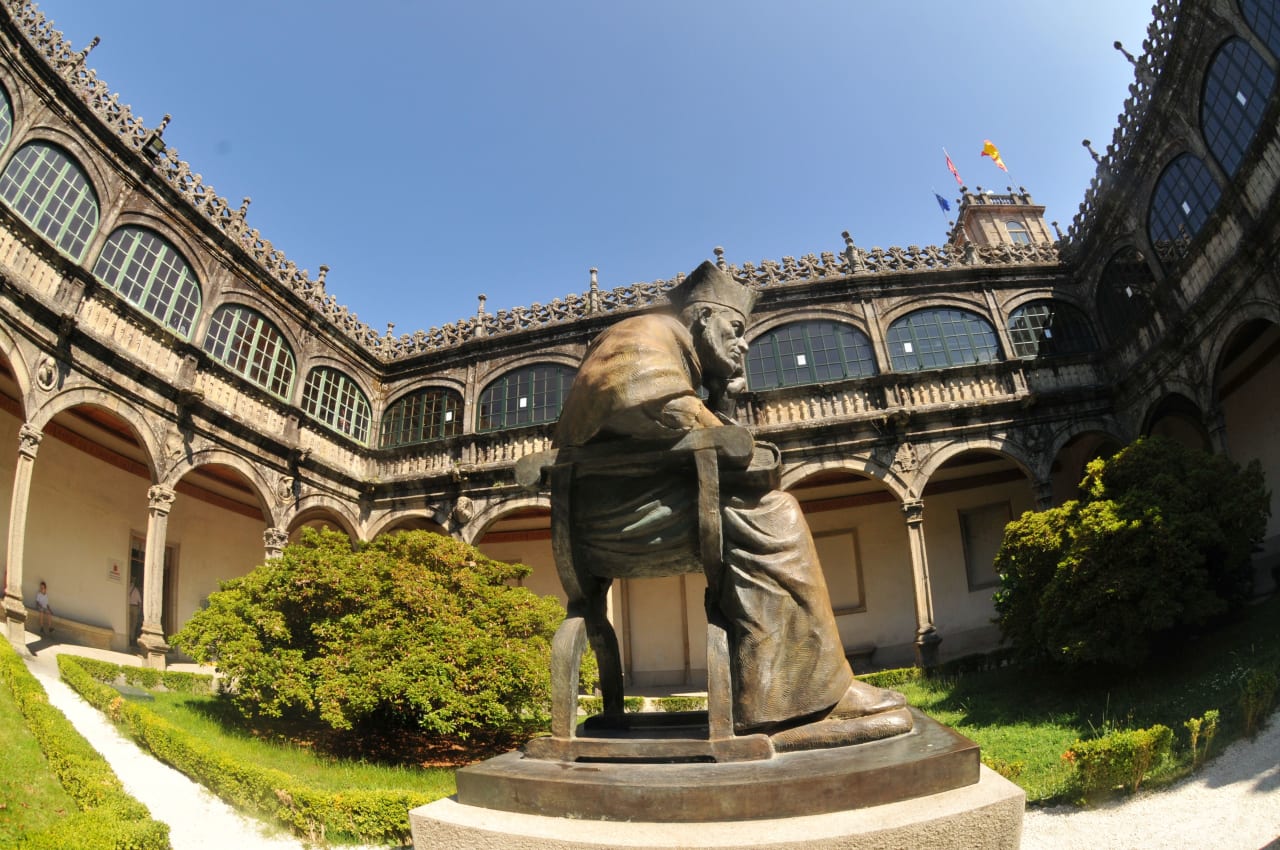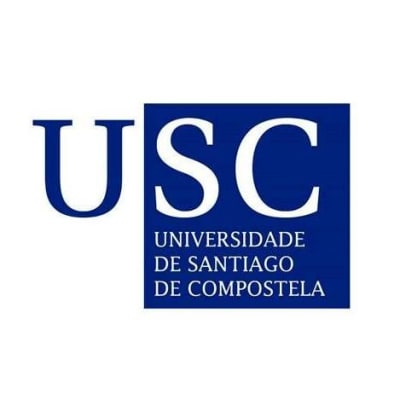
PhD in Nuclear and Particle Physics
Universidade Santiago de Compostela

Key Information
Campus location
Santiago de Compostela, Spain
Languages
Spanish, Galician
Study format
On-Campus
Duration
3 years
Pace
Full time
Tuition fees
EUR 200 / per year
Application deadline
Request Info
Earliest start date
Oct 2024
Introduction
The doctoral program is developed in the prestigious field of Nuclear and Particle Physics, which tries to understand the structure of matter by studying its most elementary components in terms of nuclei, particles and the interactions between them.
This field generated in the last 50 years a great variety of technological applications in the fields of energy, medicine and industry in general. The lines of research proposed in the doctorate are cutting-edge in the fields of experimental nuclear and particle physics of the large LHC accelerators at CERN or the GSI, in more applied fields of ionizing radiation in medicine, industry and environmental physics. , in the exploration of the universe by means of particles and high-energy radiation, in the description of the structure of hadrons and the confinement of quarks, in modern theories of unification of fundamental interactions, supersymmetry, extensions of the standard model of elementary particles and integrable field theories.
Lines of investigation
- Structure, dynamics and nuclear reactions. R&D of detectors and instrumentation for nuclear physics
- Theory and phenomenology of fundamental interactions at high energies. Detection and analysis of plasma quarks and gluons
- High energy astrophysics (neutrinos, gamma rays and cosmic rays)
- Non-perturbative methods and integrability in field theory
- String Theory, Quantum Gravity, and Supersymmetry
- Quark physics, CP violation and development of silicon pixel detectors in particle accelerators
- Development of grid computing techniques
- Development of radiation detectors for scientific, technological and medical applications
Gallery
Ideal Students
In general, the master's studies that will allow entry to this doctoral program without training complements will be the Master's in Nuclear and Particle Physics and its Scientific and Technical Applications offered by the USC.
Entry profile with training complements:
- BRANCH OF SCIENCES: Master of Biotechnology, Master of Science and Technology of Colloids and Interfaces, Master of Materials Science and Technology, Master of Mathematical Engineering, Master of Photonics and Laser Technologies, Master of Mathematics, Master of Advanced Chemistry, Master of Theoretical Chemistry and Computational Modeling, Master in Statistical Techniques.
- BRANCH OF HEALTH SCIENCES: Master in Biomedical Research, Master in Research and Development of Medicines.
- BRANCH OF ENGINEERING AND ARCHITECTURE: Master in High Performance Computing, Master in Information Technologies.
All of them offered by the USC.
In the case of other universities, the degrees with direct access will be by analogy with those of the University of Santiago and/or by areas of knowledge whose subject matter is in accordance with the previous training required, the objectives and the lines of research assigned to the Doctoral Program. . The Academic Committee of the Doctorate Program will be the body that decides on the direct or conditional admission of the applicant to passing certain training complements based on the documentation provided by the applicant.
Other profiles: in the case of other types of profiles different from the previous ones, the academic committee will evaluate each case individually. The possibility of requiring training supplements (maximum up to 15 ECTS) will be considered.
In the case of other profiles that do not complete a Master's degree, an equivalence of training in research credits will be required, at least equal to those of the master's degree that gives direct access, which will be 12ECTS.
Students with foreign degrees: Students with non-homologated foreign degrees may apply for admission to doctoral studies provided that a level of training equivalent to that of the official Spanish university master's degree is accredited and they are empowered in the country issuing the degree for access to doctoral studies. This admission will not imply, in any case, the homologation of the previous degree or the recognition for other purposes than those of access to these teachings.
An intermediate command of the English language will be required. Said domain will be accredited before the CAPD through any official certification (intermediate level: B1, TOEFL, Cambridge, Official Language School...). If you do not have said official certification, the CAPD will carry out the tests it deems appropriate: oral and/or written test and/or personal interview, to evaluate the student's knowledge of the English language.
Admissions
Curriculum
Formation activities
- Publication of scientific research works (articles and/or book chapters) E1071A01
- Presentation of communications and participation in conferences E1071A02
- Carrying out research stays in other national and/or foreign laboratories E1071A03
- Participation in summer courses E1071A04
- Participation in training courses on basic and applied research in nuclear and particle physics, R&D&I management, creation and management of technology-based companies and similar E1071A05
- Development of scientific exhibitions and training seminars E1071A06
- Development of scientific exchange seminars among doctoral students (PhD-Meet) E1071A07
Training complements
- Quantum field theory P1211201
- Particle Physics I P1211202
- Particle Physics II P1211203
- Nuclear structure and astrophysics P1211204
- Advanced Quantum Mechanics P1211221
- Radiation-matter interaction P1211226
Program Outcome
The doctoral program is developed in the prestigious field of Nuclear and Particle Physics, which seeks to understand the structure of matter by studying its most elementary components in terms of nuclei, particles and the interactions between them.
In the last 50 years, this field has generated a wide variety of technological applications in the fields of energy, medicine, and industry in general.
The lines of research proposed in the doctorate are leading in the fields of experimental nuclear and particle physics of the large LHC accelerators at CERN or GSI, in more applied fields of ionizing radiation in medicine, industry and environmental physics. , in the exploration of the universe by means of high-energy particles and radiation, in the description of the structure of hadrons and the confinement of quarks, in modern theories of unification of fundamental interactions, supersymmetry, extensions of the standard model of elementary particles and integrable field theories.